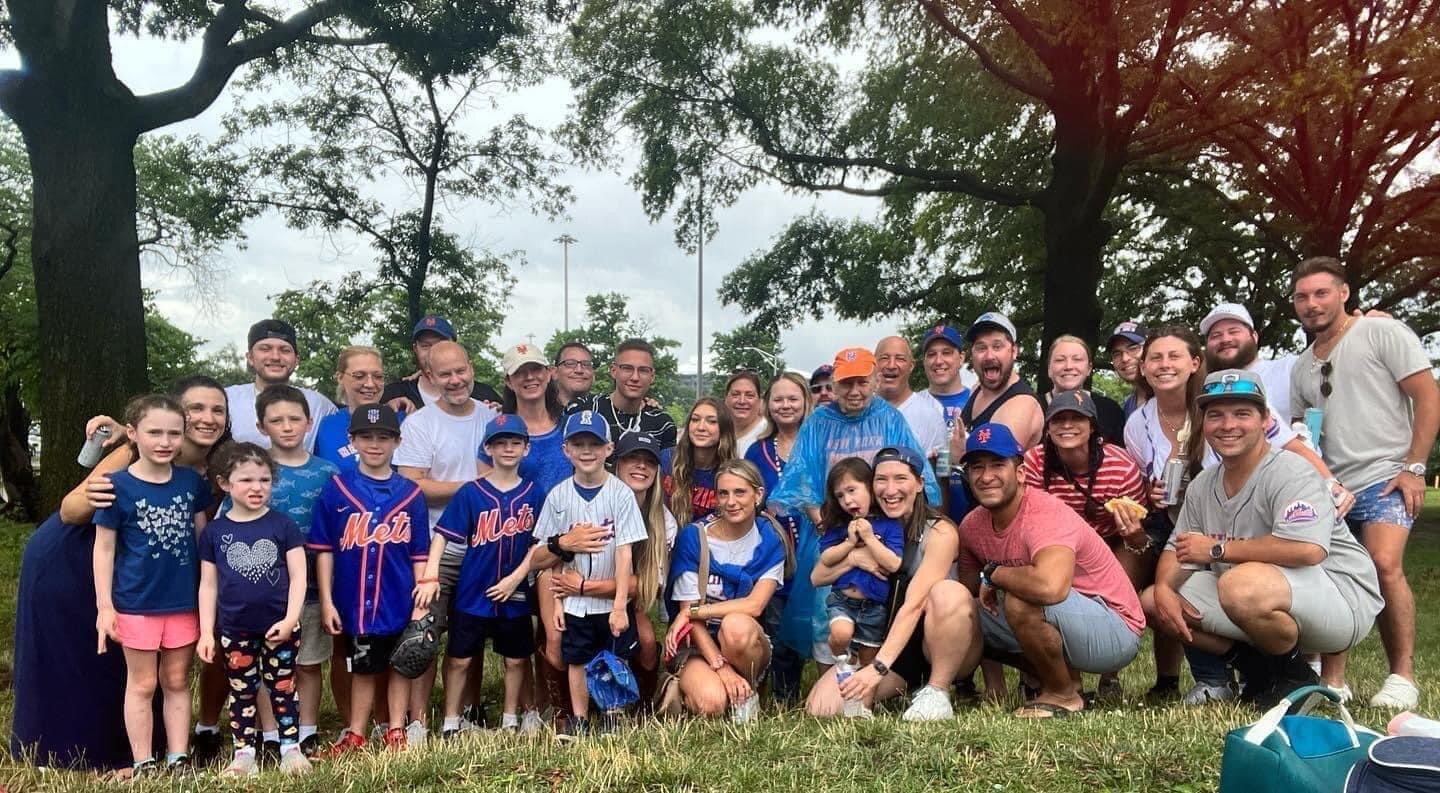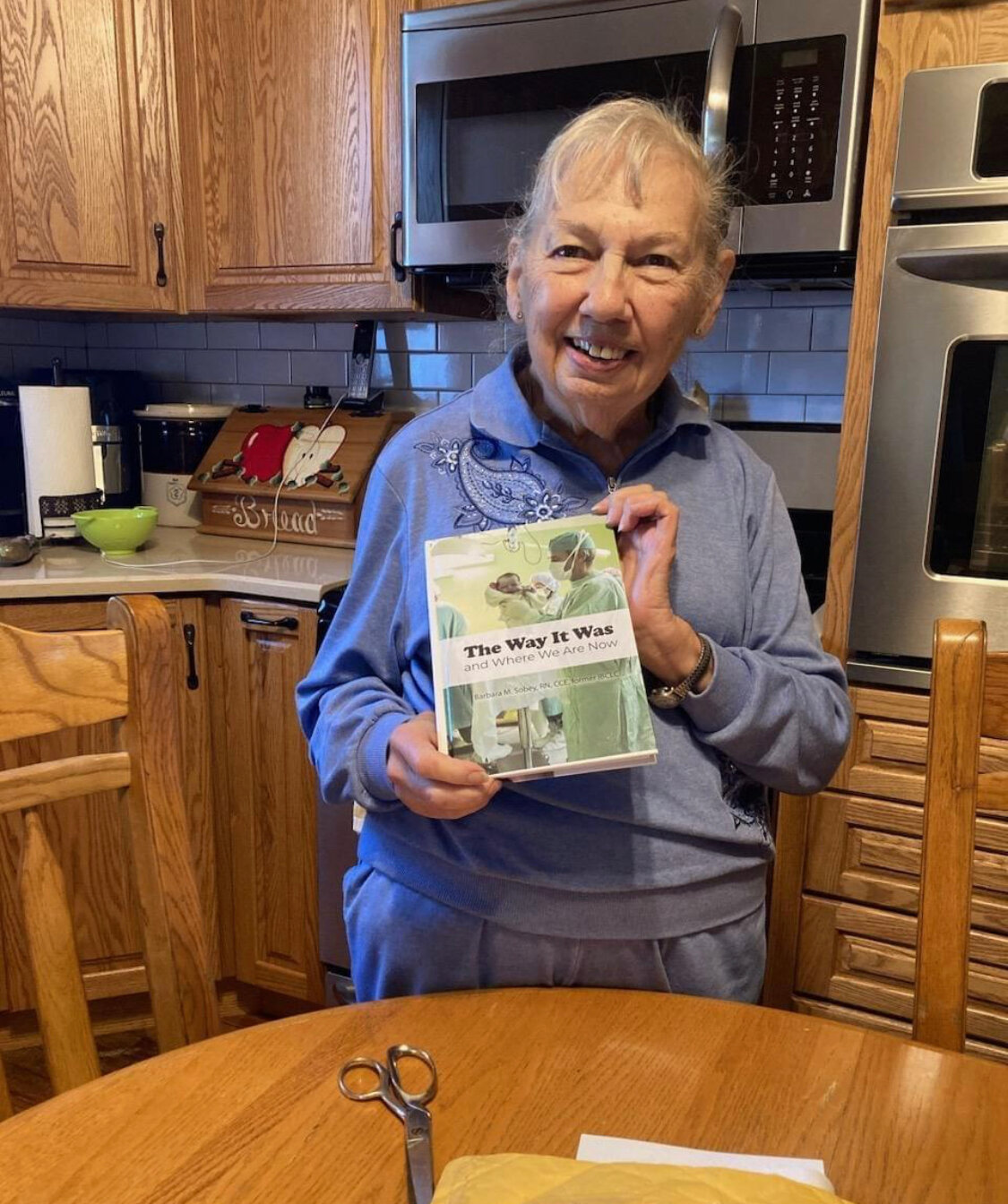Friday, July 26, 2024
Lynbrook woman logs evolution of maternity
Labor and child-raising isn’t what it used to be. Barbara Sobey, of Lynbrook, hasn’t just researched it — she’s lived it. She’s had 13 children over the course of 29 years, and experienced a dramatic shift firsthand.
“It was very dark,” Sobey, 80, recalled of her first labor in 1960. “The doctors came every once in a while with flashlights to check the patients there. And everybody, I remember, was screaming their heads off. It was horrible.
“And then I was given a shot of something. That was all I remember till after I woke up, and was told I had a baby girl.”
She was 17 years old. Yet, the trauma of her first delivery didn’t discourage Sobey and her husband, Peter, from having 12 more.
“I always said I wanted a dozen kids,” Sobey said. “And my husband said, ‘they come one at a time. You’ll change your mind as life goes on.’”
Needless to say, Sobey did not change her mind.
“It’s really a lot of fun — never quiet or dull,” said Sarah Sobey-Parrott, the second-youngest of the 13 kids.
“I always had almost like a second or third mom around,” she added. “I always had someone around to play with.”
The siblings remain close. But compared to the oldest, the youngest, in 1989, was born into a different world — an evolution that Sobey witnessed herself.
Sobey remembers getting her first pack of disposable diapers in 1962, and promptly throwing them away in favor of cotton diapers she had been using; now disposable diapers are the standard. She remembers dressing her babies in little flannel robes, called kimonos, which were common at the time; now baby registries are full of tiny shirts and jeans. She remembers a time when fathers were not allowed to touch the baby until after they were discharged from the hospital; now doctors let them in the delivery room, and even cut the umbilical cord.
She has watched society swing back and forth on the “right” and “wrong” ways to go about childbirth and infant care — not even baby food is safe from the cultural pendulum.
“They (used to) put off giving a baby food for about a year,” Sobey said, adding that attitudes changed when baby food companies developed. After one delivery, Sobey was even told to give her baby cereal the day she came home from the hospital.
“And then it became a contest among mothers — how early can they start giving their babies food?” Sobey said. “Like this is going to make a better baby or something.”
“Now we’ve gone back to waiting four to six months at least before starting on food,” she said.
Sobey, a nurse and who also worked as a lactation consultant and childbirth instructor for 30 years, said that there are issues with how this country handles pregnancy and delivery. When compared to other similarly wealthy countries, the U.S. has among the highest rates of cesarean sections, infant mortality, and maternal mortality.
“It seems like the more intervention we use, the worse our statistics get,” Sobey said. “Birth should be as natural as possible.”
Sobey encourages every woman to trust her instincts and do what is right for her, whether that means delivering in a hospital or at home. The most important thing, she said, is that women know their rights, and are able to advocate for themselves during the labor process.
She has made it her mission to share her knowledge by publishing her first book, “The Way It Was — And Where We Are Now,” which is 15 years in the making.
“My purpose was to explain to this generation of women how things have changed over the years.” Sobey said. “I just wanted to let mothers know that it’s such a difference in baby care and birth.
“And I felt it wouldn’t be of any interest unless I gave it the story within my own life.”
Though the Sobey family looks a little different from others — a few of the 21 grandchildren are younger than the 4 great grandchildren — they wouldn’t change it for the world.
“It was a lot of fun,” Sobey said of her 13-child household. “I miss the noise that went through the house every day, the chaos.”
“It wasn’t about having the fanciest car or a fancy family vacation every year,” Sobey-Parrott said. “We were always together. We were always taken care of. We were always nurtured. We were always loved.”
HELP SUPPORT LOCAL JOURNALISM
The worldwide pandemic has threatened many of the businesses you rely on every day, but don’t let it take away your source for local news. Now more than ever, we need your help to ensure nothing but the best in hyperlocal community journalism comes straight to you. Consider supporting the Herald with a small donation. It can be a one-time, or a monthly contribution, to help ensure we’re here through this crisis. To donate or for more information, click here.
Sponsored content
Other items that may interest you









